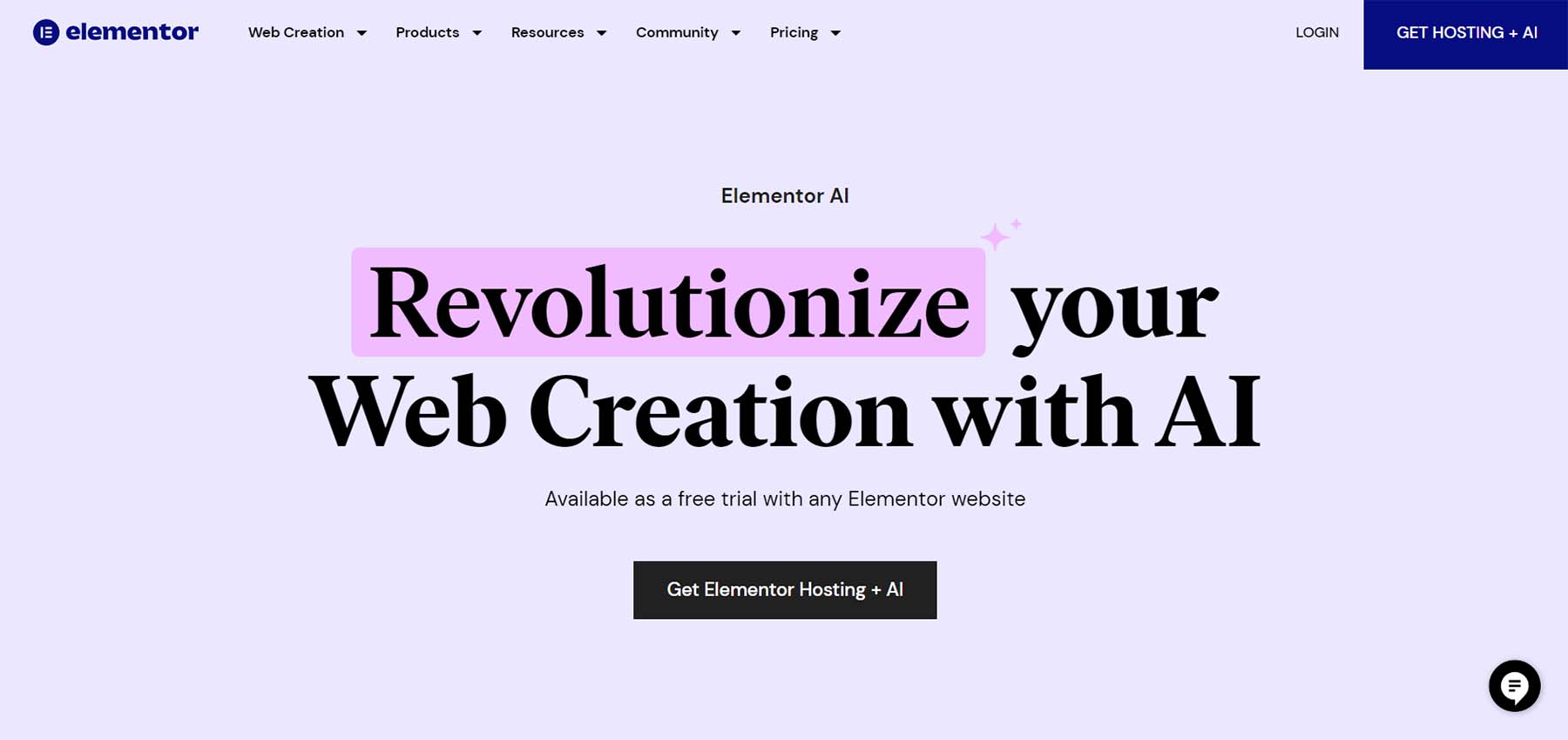
Which is better Divi or Elementor?
What website builder stands out when it comes to functionality and user experience? Are there considerable differences between Divi and Elementor? How do they impact the outcomes for businesses seeking an effective online presence? These vital questions pertain to the ongoing debate between Divi and Elementor, two competitive WordPress plugins that offer unique design possibilities.
A Washington Post study discloses there’s been an ongoing deliberation regarding the user-friendliness and the range of features these two platforms provide. Likewise, a Forbes report highlights the decisive role these elements play in the effectiveness of a website’s user engagement and potential ROI. Accordingly, in a bid to address this debate, it is proposed to systematically compare both platforms through an in-depth analysis and user reviews. This is further justified by several domestic investigations conducted across the United States, emphasizing the importance of choosing the right website builder.
In this article, you will get a sneak peek into different aspects of both Divi and Elementor. Starting with an introduction to their features and functionality, to delving deeper into their pros and cons, user ratings, and flexibility. Not only that, but we will also draw attention to how they influence the overall website creation experience.
The aim is to offer you an indisputable evaluation that simplifies the decision-making process, so whether you’re a freelancer, a small business owner, or run a full-scale agency, you could pick the tool that suits your exclusive needs and objectives the best.

Definitions and Meanings Behind Divi and Elementor
Divi is a popular WordPress theme and website builder. It allows users with zero knowledge of coding to create beautiful and professional-looking websites with ease. The Divi builder comes with drag and drop functionality which simplifies the web design process.
Elementor, on the other hand, is a WordPress page builder plugin that gives users the flexibility to design their own websites from scratch. It provides a live editing experience so users can see their changes in real time. Despite being a plugin, it offers extensive functionality and freedom for customization.
Divi vs Elementor: The Battle of the WordPress Titans
Comparing Functionality Between Elementor and Divi
When it comes to functionality, both Elementor and Divi have merits. However, they offer services in different ways. Elementor shines in its ability to provide control over detailed site elements. It uses a drag and drop interface that is intuitive, making it a great choice for beginners. This enables you to easily create complex layouts without needing any coding knowledge. On the other hand, Divi prides itself on offering a more comprehensive end-to-end solution. Beyond just a page builder, Divi includes in-built site-wide design settings and a theme builder feature. This means you have the capability to create custom headers, footers, and other parts of your website outside the normal content area.
Analysing User Experience with Divi and Elementor
In terms of user experience, both Elementor and Divi aim to make your life as a web designer easier, yet they approach it in distinct ways. Elementor stands out with its quick and responsive live editing. Every change you make is instantly reflected in the preview. Divi, however, leans into the experience of building your site from a front-end visual perspective with its inline text editing feature where you type directly on the page.
Both Divi and Elementor provide a commendable amount of keyboard shortcuts, making designing quicker and more fluid once you get the hang of them. But it’s the little details where Divi really shines, like being able to quickly copy and paste styles and content across the page.
- Elementor is ideal for those who wish to retain detailed control over every website element.
- Divi is an excellent choice if you’re looking for a comprehensive design system rather than just a page builder.
- Elementor’s live editing is quick, responsive, and shows instant previews of changes.
- Divi provides a unique front-end experience with inline text editing, and the ability to copy and paste styles quickly.
To sum up, when deciding between Divi and Elementor, one is not necessarily better than the other; it ultimately depends on the users’ needs. For detailed control and an intuitive interface, Elementor is the preferred choice. On the contrary, for a holistic design system and unique editing experience, Divi holds the trump card. It’s about understanding what aspect of functionality and user experience is more critical for you, and then making an informed choice.
Carving Your Website’s Destiny: Unleashing the Power of Divi and Elementor
Comparing Customization Prowess: Divi vs. Elementor
What parameters determine the superiority of a website builder? It is an interesting question considering the raging debate between Divi and Elementor users. However, analyzing their customization capabilities provides clear insights. The key idea is as simple as it gets – the platform that provides superior flexibility is the apparent winner. Elementor, with its scoped and reusable widgets, surges ahead here, offering granular customization to users. Plus, it provides you with unique capabilities, such as inline editing, making the platform easy to use. Unlike its counterpart, Divi lacks in terms of flexibility – its modules are less customizable than Elementor’s widgets, giving users limited design options.
The Challenge at Hand: Limitations of Divi and Elementor
Behind the glossy surface, both Divi and Elementor have limitations. For Divi users, the interface is less intuitive than Elementor’s, translating to a steep learning curve for beginners. With Elementor, the problem extends to performance issues. Websites built using Elementor often suffer from slower loading speeds due to heavy JavaScript dependencies, thus affecting the site’s overall performance. Even though Elementor’s customization flexibility is higher, these performance trade-offs can’t be overlooked. Divi, on the other hand, might offer less flexibility but it excels in performance, offering quick loading speeds that are critical in this era of instant gratification.
Winning with Best Practices
Understanding and implementing certain practices can help leverage the strengths of both Divi and Elementor. For Elementor users, minimizing the use of widgets that notably slow load speed is a great start. Moreover, by using inline editing and mobile editing features effectively, users can harness Elementor’s true potential. Divi, despite its limitations, has selling points too. Users can take advantage of the global modules which can be customized and reused throughout the website. Another major strength includes its strong performance, taking advantage of this by reducing heavy elements on a site can greatly improve user experience, thus leveraging Divi’s potential to the fullest.
The Showdown: Harnessing the Unique Capabilities of Divi and Elementor in Website Creation
Thought-Provoking Inquiry: Elementor or Divi? Which Offers Superior Functionality and Pricing?
What makes a website builder stand out among its contemporaries? Is it the intuitiveness of its interface, the diversity of its templates, or the competitiveness of its pricing? When examining Divi vs. Elementor, these aforementioned factors, amongst others, must be considered. Both builders have their unique advantages and pose challenges in certain areas. Divi’s strength lies in its versatility and value for money. Importantly, it offers lifetime access for a one-time fee, which attracts businesses looking for a cost-effective yet professional solution. Also, users frequently acclaim its fantastic template variety, which caters to multiple sectors. However, transitioning between templates can be a bit of a challenge due to interface constraints. Conversely, Elementor has a free basic version but to enjoy its wide range of templates and plugins, users inevitably must upgrade to its Pro version. The benefit being, Elementor’s user-friendly interface that makes design assembly feel effortless, even to a novice.
Cracking the Conundrum: Bridging the Gap between Pricing and Features
Following closely, the dissimilar pricing structure of Divi and Elementor often leaves users slightly confounded. Elementor’s ‘freemium’ model provides a free base version, but the more comprehensive features are locked behind its Pro version. Its pricing is on an annual basis, meaning that users must renew their subscription regularly. This can potentially lead to higher costs in the long run, particularly for small businesses or startups. Alternatively, Divi’s one-time pricing model is appealing for those seeking a more permanent solution to their website design needs, but it can feel like a significant immediate investment. Added to this, the lack of a free version for users to trial before purchasing potentially deters those uncertain about Divi as their chosen builder. This divergence in pricing structures can create confusion, making it a challenge for potential users to discern which model would be the most cost-efficient for their specific needs.
Celebrating Success Stories: Exemplifying Best Practices in Action
The exemplification of best practices is the real testimony to the prowess of a website builder. Divi’s elegant and vast template repertoire, combined with its attractive lifetime pricing, has seen it being embraced efficiently in fields as varying as online retailing, digital marketing, and photography. Elementor, with its hands-on and engaging interface, has empowered novice users to design robust websites — as observed in its application in e-learning platforms, personal blogs, and social community websites. Even small-scale restaurants have leveraged Elementor to create visually appealing menus and easy online booking capabilities. Thus, while both builders cater to wide-ranging clientele, they each have unique success stories, attributable in large part to the effective utilization of their respective features.
Conclusion
Could there really be a definitive winner between Divi and Elementor? These plugins have their unique strengths and are both excellent choices, depending on your preferences and needs. Both Divi and Elementor have set a high standard in the world of WordPress page builders and expresses its power through great flexibility, a rich assortment of features, and user-friendly interfaces. Selecting either plugin would no doubt open the doors to a world of stunning web designs and efficacious functionalities for bloggers and site owners alike.
We earnestly anticipate that you continue with us on this exploration of digital tools and trends. Our team is devoted to equipping you with the knowledge necessary to make informed decisions on the best digital resources to utilize. Stay tuned to our blog as we continue to dive deeper into the world of digital technologies, exploring other significant players and emerging forces in the industry.
Our next series of reviews and guides are shaping up to something you wouldn’t want to miss. We can’t wait to present to you some of the latest innovations and ideas that are trending in the digital world. For now, you may want to hang on to your seats as we prepare to introduce newer, more exciting concepts, strategies, and tools that are revolutionizing the digital landscape.
F.A.Q.
1. What are the main differences between Divi and Elementor?
Elementor is a widget-based page builder that provides a live preview interface, while Divi uses a mixture of sections and modules. Elementor offers a wide variety of templates and a more intuitive drag-and-drop interface, while Divi excels in layout flexibility and customizability.
2. Can I switch between the two page builders once I select one?
Switching between the two builders is not advised because it could potentially break your website layout. Both builders use shortcodes, which may not be compatible with the other system once you decide to switch.
3. Which builder offers better performance?
Both Divi and Elementor offer excellent performance and depend on the website’s theme and hosting service you choose. However, Divi has slightly faster load times, making it somewhat better in terms of performance.
4. Can I use Divi and Elementor on the same website?
While technically you can use both at the same time on the same site, it is not recommended. Having two page builders can increase the complexity of managing the website and potentially slow down your site.
5. Which builder offers better customer support?
Both Divi and Elementor offer comprehensive customer support. However, Divi stands out by offering 24/7 live chat support, while Elementor provides support through a ticket-based system.